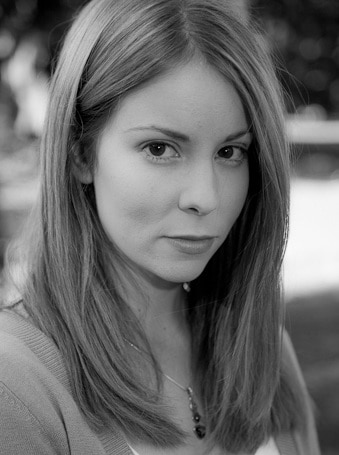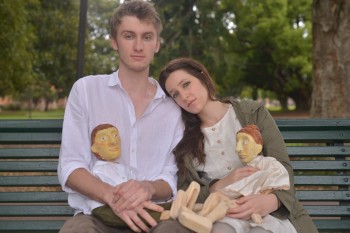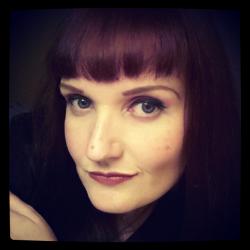Independent Spotlight Perth: Sarah McKellar and North Sea Boat Terminals

Perth’s theatre scene is full of enterprising people who want to work on creatively fulfilling projects that allow them to produce cutting-edge works, maintain artistic control, and provide Perth audiences with quality, unique productions.
Cicely Binford takes an up-close look at some of the ‘independents’ in Perth and their steadfast commitment to producing exciting theatrical works of superior quality for Perth audiences.
Your company’s name is quite unique – what is its origin?
I was reading a book on theatre by American performance group Goat Island and was inspired by a story they included. It’s a lovely story, but a bit of a long one.
They wrote about the Danish architect, Rem Koolhaas – quite well known for his ‘big ideas’ approach to architecture – who was asked to build a two million square foot ferry terminal in the North Sea. He replied that due to the size of the request, they needed to consider the philosophical implications of the architecture and construction. He suggested that they could a) construct the building as quickly and cheaply as possible, which might be efficient, but would have a sense of flimsiness and unreality about it due to its sudden appearance, or b) hire a small team of labourers who would construct the building over an entire lifetime.
In the book they summed up this concept with, “What kind of North Sea Boat Terminal is your life?”
I love this concept. As artists, we can go from show to show, making whatever feels good, or we can think about what our lifetime’s worth of art is going to add up to. This is part of why I love to work with young and emerging performers; part of my ‘ferry terminal’ is helping others along in what I know to be a very scary industry.
How did your company come together? Who are its members?
Being a pretty young company, our members are still in flux; we’re constantly shrinking and growing. I tend to gather people in for a project and then we see if we’re a good long-term fit. At the moment we consist of myself, our puppet-maker and designer Chloe Flockart, our dramaturg Claire Bowen and our producer (and sometimes actor) Natalie di Risio. We have a few others joining us soon as well, by the looks of it. The company are all creative/administrators rather than performers because part of the company’s mission is to provide opportunities for young actors.
I began the company when I decided that it was time for me to act on my hunch that Shakespeare could be a heck of a lot more enjoyable if we cut it down to a reasonable length and gave people something to look at as well as listen to (I could talk about this for ages, don’t get me started). Luckily, I was really encouraged and supported by the people close to me, so we’ve managed to make it stick.
How many shows have you produced, and what were the most successful ones?
As a company, this is only our second show, though all the members have been in the Perth scene for quite a while now, making lots of different types of theatre.
Our first was All’s Well That Ends Well, which we first produced at the Old Mill in 2011 and then at Summer Nights/Fringe World in 2012. We had no idea how people would respond, but they seemed to really see the potential. People that walked in off the street walked out smiling and commented on how much they enjoyed it. When we did the show again for Fringe World people said things like, ‘this is the first time I’ve ever enjoyed Shakespeare’. That’s so rewarding to hear, because it’s exactly what we want to achieve. We believe Shakespeare is amazing and we want everyone to be able to enjoy it, not struggle through it.
Does your company have a mission statement? Manifesto? Modus Operandi? Philosophy?
That’s another thing we’re coming to refine as the company grows, but essentially we have two points to our mission:
1. Make the classics accessible. We define ‘accessible’ as understandable, affordable, fearless and fun.
2. Provide opportunities for emerging artists.
For me, the company is about encouraging people to follow their dreams. My dream is that people will see how much enjoyment can be had from watching and performing Shakespeare; so that’s one part of what we do. The other part is giving young people a chance to learn and try something new with a bit more exposure, surrounded by experienced theatre-makers who can help them when they need it.
How like-minded are your members? How different? Do you each specialise in something particular, or are you all generalists that can move in and out of different production roles as needed?
So far we have more of a company structure than an ensemble structure, so we tend to stick to the same roles. In Perth a structure like this is quite rare for an independent theatre company, because most started when a group of like-minded people wanted to create more opportunities for themselves. I started on my own and sought out people with particular skills whom I trusted and respected and got them excited about the vision. In the end, though, I want to support anyone I’m working with, so I think in the future we’ll start to shift around more. Most artists in Perth are ‘slashies’ so they tend to be very multi-skilled!
What themes do you like to explore? What style of work do you like to produce?
At the moment we’re sticking with the classics in terms of content, but I’ve noticed that my bent as a director is to find the hope in everything. As a theatre-maker it’s important to me to provide an opportunity for audiences to experience hope, whether it’s visceral, or tangible, or conceptual. We don’t just need to see drama, we need hope as well, otherwise what’s the point? You may as well watch the news and feel helpless.
I needed to find the hope in Romeo and Juliet too. I remember reading an article many years ago that stated that art that explored suicide, even in a positive or informative way, was actually not helpful to people with mental illness or those considering suicide. That stuck with me; I couldn’t justify just putting on a show where the ending was completely hopeless. I had to find the hope in it. You’ll see it in the ending of our production. I have no interest in saying, ‘Isn’t it terrible?’ … I want to say, ‘Look at what we could do, together’, and then sing “Defying Gravity” holding hands. I want us to feel more, talk more, do more. There’s too much apathy in the world, and too much fear. Shakespeare is the opposite of apathy and fear.
Do you have a process for developing new work? Obviously you have adapted scripted works; do you only produce adapted or devised works, or do you also produce published, scripted plays?
My background as a director and performer has encompassed lots of different types of work, but the company’s focus so far is to produce semi-devised, semi-adapted works of classics. In the future, we might branch out into something classics-related, like Rosencrantz and Guildenstern are Dead.
My process to create these works comes from doing a lot of devised productions. Firstly, I look at: What is this story really about? What is it trying to say?
Then we cut the script to around an hour and a half and I make notes about what we’ve lost in the cutting. With Shakespeare you lose a lot of imagery and some thematic references, so I look at how we can put those back in visually; then we devise around that idea with the cast. When we did All’s Well That Ends Well, we cut the subplot, which basically looks at the effect of war. We wove that back into the text visually by doing a movement sequence with toy soldiers being thrown about, while another character had a long monologue about war.
Sometimes it’s as simple as, ‘What is the simplest way I can give the audience this information?; and someone might come in and say one line, or move an object, or do a dance. In today’s culture, we’re so efficient at receiving visual information, so you don’t always need to talk about everything.
What are the challenges and joys of producing independent theatre for you? What are your plans for the future?
It’s incredibly challenging to work without the support of a major venue or company, because it’s really hard to get the word out about our shows. We get supportive audiences but not large audiences. Small audiences can be fun, but managing the finances afterwards is tough. This time round we’re doing a Pozible campaign, which will hopefully help us a bit.
The joy for me is in the creativity and the expression. I love Shakespeare because it teaches us to express ourselves and to be passionate about the world. I love sharing that with people.
We’re trying to think really long term about our shows – we’re looking at touring R&J to schools next year and we’ll submit to tour regionally the year after that. Apart from doing shows, next year we will be doing classes and workshops in schools and communities, which I’m really excited about.
Where do you see your company’s place in Perth’s theatre scene? Do you have any thoughts about the independent sector at the current moment?
Ahh, let me just warm up my diplomatic muscles.
We are incredibly lucky in Perth to have a presenter like The Blue Room Theatre available to us. You don’t get that anywhere else in Australia. If I had a wish for Perth, it would be for more companies to be braver and more creative about where they put their theatre on, because in fact there are plenty of places to do it. Companies like Circle in the Sand, Upstart Theatre Company and Ellandar Productions are doing really well finding little spaces away from the usual haunts, and I hope we’ll see more of that in the next few years. I think we need to start thinking further ahead and helping each other out more. I definitely have plans to encourage this…

Please describe R&J for us. What is unique about your adaptation of the story and what do you hope the audience takes away from the show?
We’ve taken a broader approach to the play than just ‘a love story’. It’s about the importance of community and the way we treat each other.
Shakespeare’s very clever in that he always finishes his plays with the message he wants to leave the audience with. In Romeo and Juliet the last scene is the parents and general community getting a pretty good scolding from the Prince for letting the family feud go so far that it resulted in a double suicide. But what with all the romance and sex and unexpected comedy, it’s easy to miss that final message: Stop this nonsense! Start looking after each other, or we’ll all suffer. R&J is not about two teenagers who were doomed from birth, it’s about two teenagers who were so manipulated, pressured, betrayed and neglected by their family and friends that they believed suicide was the only option they had left. It’s time to get off Facebook and start paying attention to each other.
R&J runs from October 8-12 at 7:30pm
The Old Peninsula Hotel, 219 Railway Parade, Maylands WA, 6051
For information and booking for R&J:
Bookings
northseaboatterminals.com
Facebook
Facebook event page
@NSBTtheatre

